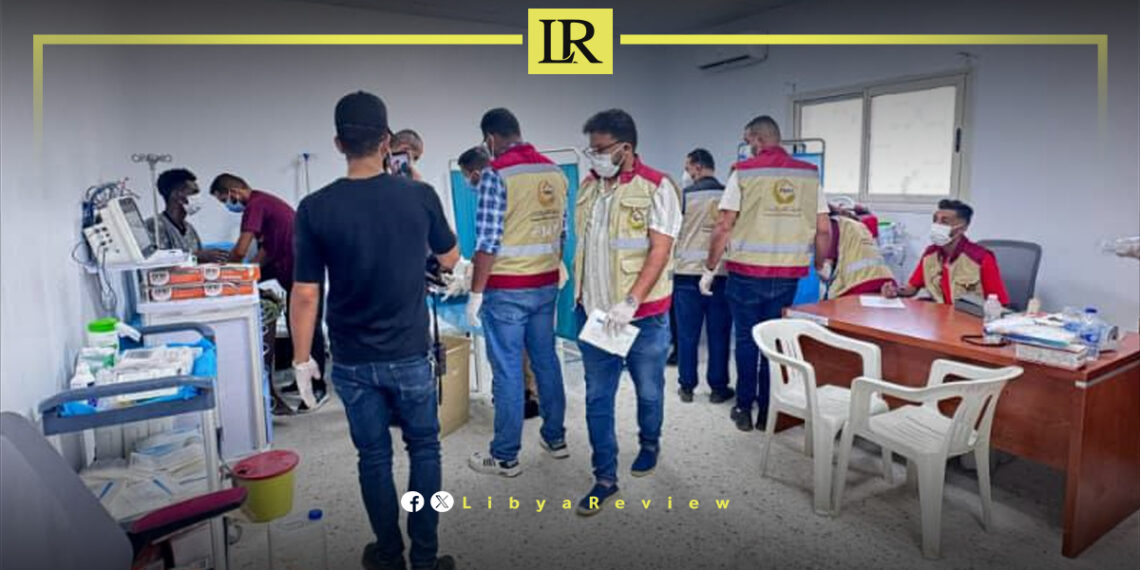Libya’s Anti-Illegal Migration Authority announced the launch of the first medical clinic inside a migrant shelter in Greater Benghazi, in collaboration with the Emergency Medicine and Support Center.
In an official statement, the Authority said the clinic was opened under the directives of the General Command and the Minister of Interior. It is designed to provide primary healthcare, medical check-ups, and emergency services to migrants housed in the shelter.
To ensure immediate response to health emergencies, a fully equipped ambulance is available during operating hours, while a second ambulance remains on-call 24/7.
The Authority confirmed that efforts are underway to expand this initiative by establishing similar clinics in other migrant shelters across Al-Jabal Al-Akhdar, Shahhat, Tobruk, Ajdabiya, and Sirte. These developments are being closely monitored by Brigadier General Jamal Al-Haddad, Head of the Hospital Security Office at the Authority.
This initiative is part of Libya’s broader national strategy to incorporate a humanitarian dimension into security operations, especially by improving healthcare services for migrants in detention centers.
Libya has been in chaos since a NATO-backed uprising toppled longtime leader Muammar Gaddafi in 2011. The county has for years been split between rival administrations.
Libya’s economy, heavily reliant on oil, has suffered due to the ongoing conflict. The instability has led to fluctuations in oil production and prices, impacting the global oil market and Libya’s economy.
The conflict has led to a significant humanitarian crisis in Libya, with thousands of people killed, and many more displaced. Migrants and refugees using Libya as a transit point to Europe have also faced dire conditions.
The planned elections for December 2021 were delayed due to disagreements over election laws and the eligibility of certain candidates. This delay has raised concerns about the feasibility of a peaceful political transition.
Despite the ceasefire, security remains a significant concern with sporadic fighting and the presence of mercenaries and foreign fighters. The unification of the military and the removal of foreign forces are crucial challenges.


